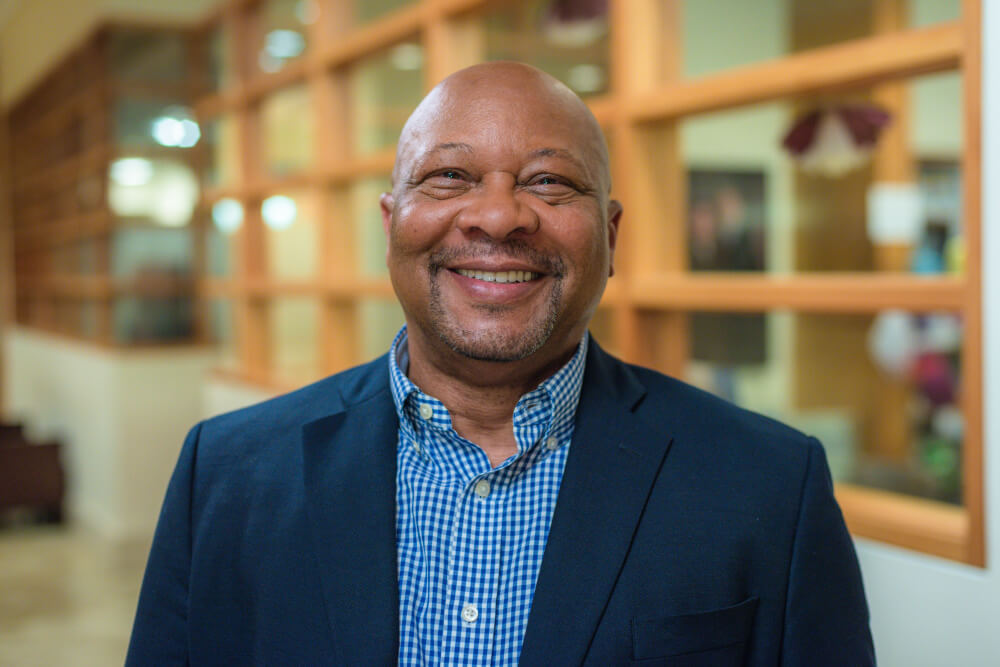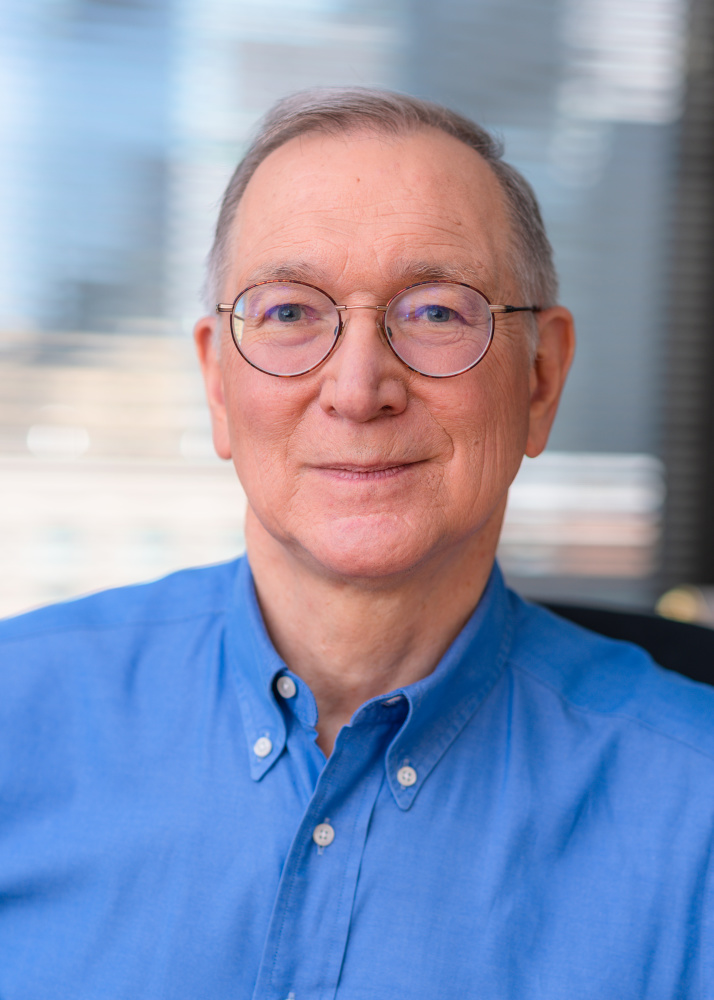Barry Nelson describes his family’s cancer history as “prolific.” Nelson’s grandmother, mother, and two aunts all died from cancer, and it seemed like Nelson might be next.
“One morning, I woke up and I had a pain in my neck on my left side. I went to my primary care physician and, ultimately, I found out that I had stage III lung cancer,” he says.
He went through several cycles of radiation and chemotherapy with standard lung cancer drugs, but none had a lasting effect and all came with painful side effects.
“Not only was I nauseous, but I also was having excruciating neuropathy and pain in my arms and sometimes in my legs,” Nelson recalls. “I can remember times when I would be in bed for two weeks, feel better for one week, and then back to my bed.”
Nelson’s doctors initially gave him less than six months to live. That’s when he realized he wanted to see a lung cancer specialist, which led him to Dana-Farber/Brigham and Women’s Cancer Center (DF/BWCC). He was placed under the care of Christopher Lathan, MD, MS.
“When you get that kind of news, you want to be at a place where they have hope and where they are going to fight as hard as you fight,” he says.

“Dr. Lathan explained to me what I could expect when it came to how my health might need to be managed. He set real expectations for me,” Nelson added. “I have resources and people there for me, but I didn’t want to be a burden to anyone. The blessing is that my health hasn’t deteriorated, but Dr. Lathan was very real with me, and that’s what I appreciate so much about him and Dana-Farber.”
“I’m a very spiritual person; I have a relationship with God. So I talked to God about my cancer. I would say, “God, I trust you. I know that you have a purpose for my life.’”

In Oct. 2013, Nelson joined a clinical trial at DF/BWCC’s Lowe Center for Thoracic Oncology of an immune checkpoint inhibitor, one of a family of immunotherapy drugs that use the body’s own immune system to fight cancer cells. Dana-Farber’s Gordon Freeman, PhD, is one of the pioneers in the field of immunotherapy, dating back to the 1980s, and in 2000 he discovered the PD-L1 protein and its connection to the body’s immune response to cancer, giving researchers new pathways to target.
Once given months to live, Nelson is now thriving under Lathan’s care. He participated in the trial until January 2016, and currently shows no evidence of disease. He also had the opportunity to meet Freeman, the scientist behind the discoveries that led to this new treatment.
“When I first started the immunotherapy drug, I immediately knew it was working. I could feel my body changing — pain, neuropathy, all those things were beginning to go away. My tumors shrunk about 25 percent immediately,” Nelson recalls. “I’ve been doing outstanding ever since. My life is full.”
“When I look back at my family, that my mother died from cancer, her mother, her sisters — they all went through chemotherapy and radiation like I did. But for me to have been able to participate in a cutting-edge treatment that’s helping so many other people — I feel like that’s part of what God wants for me.”

I’m anotherung cancer patient who is now stable and doing well. All thanks to Opdivo and Dr. Rajutha Sunkara from DF South Shore. She saved my life ?
My dear Barry you are an inspiration to all who have had the pleasure in meeting you. Your courage, determination, passion in life, smile and humble being reminds us all what living is all about. Love you dearly my friend.
Susan